- Home
- Rose Tremain
The Road Home Page 10
The Road Home Read online
Page 10
“Pudding?” said Lev. “Yes. I know English pudding.”
“Sure,” said G.K., lightly investigating the brûlée crust with the edge of his spoon, “but now you can know it properly—know it for what it means. If you’re coming to work in a kitchen, Olev, you have to get the words right. You have to get the glossary into your head.”
“I will, Chef,” said Lev. And he wanted to add, as politely as he could, that there was one word G .K. Ashe himself could get into his head and that word was “Lev,” but when he opened his mouth to speak, G.K. had turned away and everybody was concentrating on Waldo’s brûlée.
“I like it,” said Damian. “It’s quite refreshing.”
“Bloody nice, Waldo,” said Mario.
“It’s okay,” said G.K., “but vary the fruit base over the week. Try rhubarb. Try damsons.”
Lev tasted the pudding. The texture of the cream was delicate and cool and the crust hot and sweet, and once again, he had no idea what had gone into the making of this dish or how these surprising contrasts were achieved. He thought of his father saying, “Things can only be what they are. We Communists always understood this, but the new generation doesn’t. They need reminding: a loaf of bread is just a loaf of bread. It’s not a bag of gold. It’s not a ruddy music box.” And then Lev remembered Ina standing up to Stefan, for once, and saying, “If things can only be what they are, why has the Church of St Nicolas at Baryn been turned into an indoor swimming pool?”
Now Lev’s arms were deep in his sinks. Round his head, G. K. Ashe had tied a clean white cotton bandana. He’d done this almost tenderly, tucking Lev’s springy hair underneath it. “Nurse’s hat,” he said. “Keep it tight, okay, Olev? I don’t want human DNA in the dishwater.”
Lev worked, trying to keep pace with the rising tumult at the chef’s stations. The hot water, the grandeur of the steel surfaces, the fierceness of the rinse faucet made him forget that this was a lowly job. Steam clouded the tiles. On his right-hand surface, the chefs hurled down mixing bowls, strainers, knives, stock pans, whisks, and chopping boards, and Lev’s hands took them up and immersed them. He’d been nicknamed “Nurse,” so now, in his imagination, he became a nurse to these objects. He told himself to examine each pan, each utensil, in a clinical way, to coax the dirt out of it, to keep watch, moment to moment, over its arduous alteration.
After a while, running clean hot water, beginning everything again with, at his back, the chefs hunched over their burners and the smell of poaching fish fumigating the air, Lev’s mind began to drift. He imagined himself dressed in a nurse’s white cotton clothes, walking down to the sulfur lake at Jor and immersing helpless people in the gray deeps. Storks on a chimney top regarded the people as the lake water washed over them and their pale skins began to shine through the bluish mist.
One of these helpless people was Marina, and Lev started to scrub at her flesh. He scoured her neck, her armpits, her arse, her feet, her ears; he rinsed her mouth. Then she lay back on the surface of the water, and Lev’s arms lifted her up and wrapped her in a clean white towel and set her down where the other people waited, on a wooden balcony. She wasn’t cured, of course. His task had only just begun. What would cure her was his nurse’s endurance, his willingness to repeat the immersion and the harsh but inevitable scraping and scouring of her flesh, to repeat it over and over again, without giving up, without breaking . . .
A food-scented presence at Lev’s elbow woke him from his reverie. G. K. Ashe threw a mop into his hands. He pointed at the floor. “What’s that?” he said. “You’re turning my kitchen into a fucking inland sea!”
Lev looked down. His brown shoes stood in a puddle. A scum of water lapped against the back of the vegetable chiller. His apron was soaked, and even his trousers were wet and clung to his legs. “Sorry, Chef,” he said.
Ashe snatched up a red plastic bucket from under one of the sinks. He hurled this at Lev, and it struck him on the thigh and bounced away onto the slippery floor.
“Swab it!” he said. “And stop dreaming. I’ve been watching you. Concentrate!”
Mario, headed for the restaurant door, carrying three servings of venison ragù with pasta, called out, “Table four’s away, Chef!”
Ashe turned, almost lunging at Mario. “I don’t call that ‘away,’ Mario,” he shouted. “Where’s the ballotine?”
“Coming next, Chef . . .” said Mario, and disappeared, leaving Ashe mumbling, “Don’t say a table’s away when it isn’t away. Can’t anybody here count?”
Ashe moved away from Lev’s station, and Lev filled the bucket from the rinse faucet and began to mop the floor. Now that he’d left the lake at Jor and was back in the kitchen, he realized that his eyes were stinging and that an immovable pain had lodged itself between his shoulderblades. He longed for a cigarette. The water all round him surprised him, but he knew he had to vanquish this, too, keep on mopping and squeezing out the mop until the tiles were dry. But he couldn’t get them dry. He couldn’t even get them clean, because where his own feet trod, grimy footprints remained.
He looked around for a floor cloth or a rag. (At home, when Ina washed the floor, she, like Ahmed, laid newspaper over it and the paper slowly darkened with moisture and Maya sometimes knelt down on it to watch the people in the photographs gradually turning black.) Unobserved, Lev snatched a clean tea towel off its peg and knelt and began to rub the floor with this while, at his back, he could feel the heat from the ovens and the burners reach a new intensity.
Lev squeezed the tea towel and threw it out of sight under the sink. He dried his hands. He stared at a large pan that had arrived beside his sink. It was smeared with what looked like yellow glue. He remembered an article in the Baryn Informer about the new craze, in the West, for a peasant dish from Italy known as polenta. “Polenta,” said the Informer, “is maize flour mixed with seasoned water. It is what the poor blacks of South Africa have called ‘mealie-meal’ for generations. It is starvation food, sold at high prices. To put polenta on an expensive menu is a mendacious and decadent act.”
Lev lifted up the polenta pan. The smell of it was like the smell of a barley field at harvest time. Lev ran more hot water.
By eleven, Lev could feel the movement in the kitchen slowing and the objects that arrived by his sinks were different: baking trays, sorbet glasses, ramekins, eggbeaters, pastry cutters, spoons, coffee cups, and cafetières. He allowed himself to turn, once, to see what everybody was doing, and he saw Sophie close the vegetable chiller and begin to take off her kitchen whites. When she removed the little cotton hat she’d been wearing, her hair was damp and lying in heavy curls close to her skull, as though she’d been swimming.
“Night, everybody,” she said.
G. K. Ashe came over to her, put a hand on her wet head, and considered her with his ice-blue eyes. “Nice calm work, Sophie,” he said. “Everything well coordinated. Pretty good.”
“Thank you, Chef,” said Sophie.
The other chefs raised a hand to her and then she turned to Lev. “Night, Olev,” she said.
Lev felt himself execute a ridiculous little bow, while holding in his hands a bowl and a whisk. Waldo and Jeb sniggered. Sophie smiled. Lev said quietly, “Sophie, I am sorry. My name is Lev. Not Olev.”
“Oh, right,” said Sophie. “I’m sorry, too.”
“Nothing to be sorry about,” said Ashe. “His name’s Nurse.”
By one o’clock—when the service was long over and the “front of house” empty of the last customers and the dining room dark and silent—the staff had gone home, and the only people who stayed behind in the kitchen were Lev and G. K. Ashe.
Ashe sat on a stool at his work station and drank white wine and made notes on his menu pads. His blue eyes darted everywhere, observing Lev as he cleaned the hobs and the salamanders, the plate warmers and the steel countertops. Lev was then reminded to sweep and mop the floor.
“I sacked the last nurse,” said G.K. as Lev poured hot water and floor cleaner
into the red bucket, “because he refused to do this late-night stuff properly. I said to him, ‘You know you’re an idiot? Idiots sleep while the smart guys work.’ But he didn’t get it. So, tough. He was history. Lucky for you.”
“Yes,” said Lev. “Lucky for me, Chef.”
But he felt as tired as an old mule. His yearning for a cigarette made him shivery. His hands were sore and burning and the ache in his back was like a wound. He longed to lay down his head on the surprised faces of the wandering giraffes.
6
Elgar’s Humble Beginnings
THE LONDON HEAT wave lasted a long time.
Dust accumulated on the gates and railings of Belisha Road, and on the tops of cars. In the garden of number 12, the grass turned brown and the malnourished puppy whined all afternoon in the dry shade of the sycamore tree.
Christy Slane kept the windows of the flat wide open and Lev grew accustomed to the sounds of North London, as to a piece of modern music which he knew others admired but which he couldn’t quite bring himself to love. One of these sounds was the council chain saw biting into the limbs of the rowan trees.
Some afternoons, Lev just sat in his room, smoking and wondering and concealing tenpound notes in brown-paper parcels padded with newspaper to send to Ina. On other days, when he felt strong in his limbs, he walked to Parliament Hill and watched the kite fliers launch peculiar buzzing mattresses into the blue air and listened to snatches of conversation by the dark ponds of the Heath. He stared at lovers and young couples with babies, and envied them. The gray skin of his face and arms turned brown in the late sunshine. His hair grew long over his collar.
Most days, both Lev and Christy stayed in bed until midday, then Christy would make tea and crawl out to a Greek shop for fresh bread. Sometimes he cooked bacon and potato scones and fried tomatoes. Then he and Lev would sit at the table in the window of the bare sitting room, eating and talking about work and money, or trying to sing the nursery rhymes they’d taught their daughters long ago. Christy reminded Lev that Ireland was a land of song. He said music was in the green of the hedgerows and in the bleating of sheep; it was in the dreaming coves of the western shore and in the malting houses of the Guinness breweries. He said England had no songs, only marches and embarrassing old laments for dead glories. “When you come to a land without song, things are bound to go tits-up, sooner or later,” he said. “I should have known that before I married Angela.”
Toward the end of the summer, Lev went with Christy to a small shop at Archway, staffed by young Indian men, and bought a mobile phone. From an assistant whose name was Krishna, he chose the cheapest model available. When he and Christy came out of the shop, Christy slapped Lev’s shoulders and announced to him that now he was a “true citizen of London,” that he was a “modern human being,” and Lev felt pleased with his purchase. The mobile had a turquoise green casing. He had, as yet, almost nobody to make calls to, apart from Rudi, but he liked to cradle the phone in his hand and rerun the selection of ring tones. And, in the early hours as he walked home to Belisha Road from his night bus, he would sometimes call Christy—wherever Christy was, in some friend’s smoky room or in some Irish pub that never closed—and say, “This is Lev. Just phoning in.”
“Lev,” Christy would invariably say, “good man! I’ll be home in a jiffy.”
But he seldom was. If a plumbing job came up, he’d tell the people he only worked evenings, and when Lev left for GK Ashe, Christy would be doing a jigsaw puzzle at the table or hanging up sheets and T-shirts over the bath. Yet one afternoon, before Lev went to work, Christy showed him a wad of money.
“Cash,” he said, “see it? Cash is gold, and don’t forget that, Lev. Get paid in cash, and I’m not funding some eejit to knacker the trees or dig up the fuckin’ road. I’m not subsidizing foreign wars or helping to redecorate the House of Commons toilets. I’m paying for me own life and that’s all. And that’s the way I like it to be.”
Christy held out the money—a clutch of twenties—for Lev to admire. When Lev had admired them sufficiently, Christy offered to come and talk to G. K. Ashe, to persuade him to pay Lev in cash, but Lev said, “No, Christy. Thank you for thinking. But I have a bank account now. Damian helped me. Sometimes I go to look at this bank, Clerkenwell branch, to feel pride in my money so safe.”
“All right,” said Christy. “I appreciate your sentimental attachment to the premises of capitalist extortionists. But it’s robbery to get National Insurance and all that extra stuff off you when the hourly rate is so pitiful.”
“I get free supper meal.”
“Sure. I guess that’s worth something. Got a top chef filling your belly once a day. But I’ve seen you come home. You’re beat. They’re workin’ you like a slave.”
“No,” said Lev. “I’m okay. And sending money home.”
“How much’re you sendin’, though? You’ve not a lot to spare.”
“Depends. Sometimes twenty pound a week. In my country, this can go far.”
“Can it? Well, Jeezus, why don’t we all move there, then?”
Christy sat down opposite Lev at the sitting-room table. His thin arms rested on an ancient tea stain. He sighed and went on, “I’d like to move there. Why not? If twenty quid a week can buy you what it used to buy. They could do with a few plumbers, couldn’t they? Put in some nice sanitary ware. Your daughter could have her own little washbasin with dolphin taps, eh, Lev?”
“You don’t want to move there,” said Lev.
“Why not? I like the sound of it. Goats tinklin’ along in the street. Tin jewelry. Old-fashioned folk dancing. I truly like the thought of it.”
“No,” said Lev. “You wouldn’t like, Christy. No future there. No work.”
“I’d make me own work,” said Christy. “Like Rudi and his taxi firm. And we could go drinking all together—you, me, and Rudi. And I’d be away from Angela. Away from the lawyers . . .”
“But also away from Frankie.”
“Yes,” said Christy, with a melancholy sigh. “Well, I know. But it’s not as if I see her, is it? Only those glimpses I get. Oh, and I didn’t tell you: Angela’s got a boyfriend now. Some eejit of an estate agent. Planning on moving in with him. Her and Frankie. Moving in with that. Kills me, it does. If Frankie starts to call him ‘Daddy,’ I’ll have to murder somebody. I tell you, fella, I’ll have to commit a serious crime.”
Lev looked at Christy, who was twisting a rubber band round his wad of twenties. On his narrow face, the flare of eczema was spreading wider.
“Why you can’t see Frankie?” Lev said quietly. “It’s your daughter.”
Christy didn’t raise his eyes, just stared at the money roll. After a while, he said, “Angela made things out. Said I was violent when I’d been drinking. Said I hit her. Said if I hit my wife, I was capable of hitting the child.”
He laid down the money and lit a cigarette. Not looking at Lev, he said, “I didn’t hit Angela. I’m sure I never did. Or if I did, it’s just vanished away out of me, into a void. So I had to tell my lawyer: ‘I don’t know.’ Angela showed me a swollen lip one time. Perhaps I did that. Perhaps I did. But I wouldn’t have said such a thing was in me. I wouldn’t have said Christy Slane would ever get anywhere near to doin’ that. But how do I know?”
Lev sat very still. He wanted to admit to Christy that, where love was concerned, he knew that he himself had been capable of saying and doing things of which he’d later felt ashamed.
But this subject needed time, and the cheap clock on Christy’s mantelpiece was ticking toward three thirty. Lev had to leave soon and get on his bus. He reached out and took a cigarette from Christy’s pack of Silk Cut. The sharing of cigarettes had become a quiet habit with them. It confirmed them, in Lev’s mind, as friends. He inhaled and said, “I believe you didn’t do this, Christy. Somewhere in your mind, you would know.”
“But would I?” said Christy. “That’s what I’m not sure about. And that’s why I can’t defend meself. It’s all
just gone dark. And now this eejit of a property-shop employee is fucking Angela and reading Frankie bedtime stories. I’m the out-and-out loser.”
When Lev got home from GK Ashe, toward two o’clock, he found Christy on the landing outside the flat door, lying in a pool of sick. Lev went into the flat and dampened a sheaf of kitchen paper and came back to Christy and swabbed away the vomit from his mouth. Then he ran a bath and carried Christy into the bathroom and undressed him and laid him in the warm water. Christy was conscious by now and aware of where he was. His face was very white, except for the sore band of eczema, and his voice sounded thin and hesitant, like the voice of a person on the end of a wavering mobile-phone connection.
“Sorry, fella,” he said to Lev. “That’s fuckin’ disgusting. Me ma used to say to me, ‘Wouldn’t mind Dad’s drunken rages, wouldn’t mind him smashing up Aunt Bridie’s tea service, if only he could keep the drink down.’ ”
“It’s okay,” said Lev. “It’s okay.”
He left Christy soaping his neck with a washcloth and returned to mop up the pool of vomit on the landing. Though the smell was foul, Lev could endure it. When Marina had become ill, she had vomited often and he’d just got used to it. It was part of her was what he used to tell himself. It was everyday human mess. It was proof that Marina was still alive.
Cold autumn arrived without warning.
When Lev left for work one afternoon, the sun was still quite warm on the windowpanes of 12 Belisha Road; when he came out into the Clerkenwell night, all the pubs and bars had closed their doors and a freezing wind was howling through deserted streets. Lev set off toward his bus stop. He tugged up the collar of his leather jacket as rain began to fall. The revolving yellow light of a street-sweeping cart lit up a suddenly unfamiliar city.

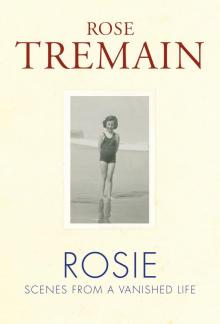 Rosie
Rosie The Garden of the Villa Mollini
The Garden of the Villa Mollini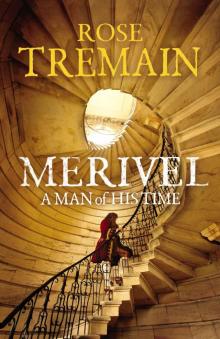 Merivel: A Man of His Time
Merivel: A Man of His Time The Darkness of Wallis Simpson
The Darkness of Wallis Simpson Earth
Earth Sacred Country
Sacred Country The Swimming Pool Season
The Swimming Pool Season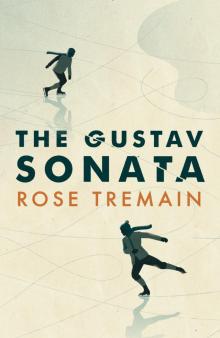 The Gustav Sonata
The Gustav Sonata Sadler's Birthday
Sadler's Birthday The Cupboard
The Cupboard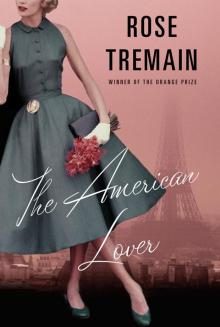 The American Lover
The American Lover Letter to Sister Benedicta
Letter to Sister Benedicta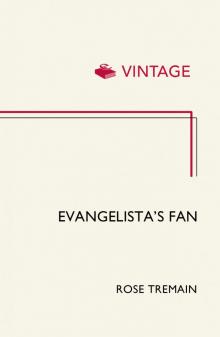 Evangelista's Fan
Evangelista's Fan Restoration
Restoration The Road Home
The Road Home The Colonel's Daughter
The Colonel's Daughter The Way I Found Her
The Way I Found Her Music & Silence
Music & Silence